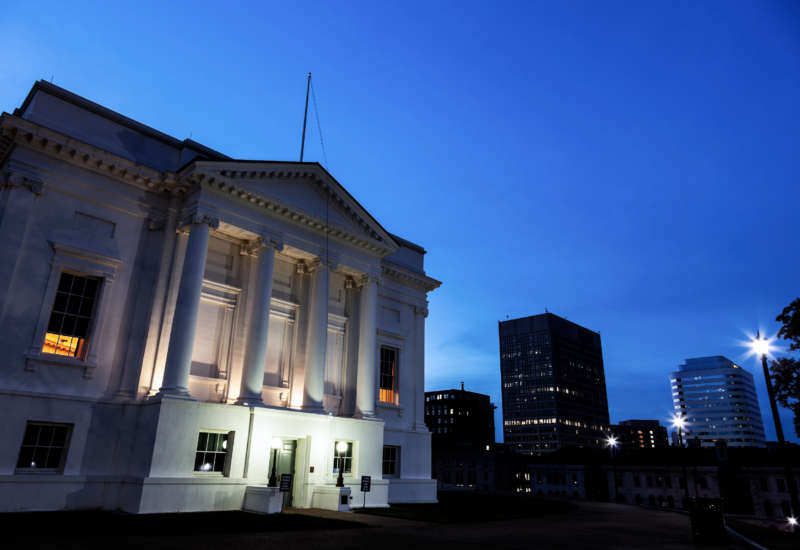Republicans in the Virginia House of Delegates have rejected constitutional amendments to restore the voting rights of people who have been convicted of felonies and to remove anti-LGBTQ language from the state constitution — meaning that Virginians will not be able to vote on the measures during the state’s midterm elections this fall.
In Virginia, any changes to the constitution must be approved by two concurrent sessions of the state legislature. After that, a statewide referendum is held, and if a majority of voters approve of the measure, it will be enshrined in the state constitution.
Although the Virginia legislature approved both proposals in its previous session, the rejection of the proposals this week means that they will be thrown out, and voters will not have the opportunity to weigh in on the changes during the upcoming midterm elections.
On Tuesday, the subcommittee voted 5-4 to reject a proposal that would have automatically restored the voting rights of individuals who have been convicted of a felony and completed the terms of their sentence. The subcommittee also voted 6-4 against a marriage equality amendment, which would have altered the constitution to remove any wording that referenced the state’s defunct ban on same-sex marriage.
Virginia barred same-sex marriage in an amendment that passed in 2006. In 2015, the federal Supreme Court ruled that states could not restrict marriage on the basis of sex or gender.
Del. Dawn Adams (D), the first openly lesbian woman to serve in the House of Delegates, gave an impassioned speech ahead of the party-line vote in which Republicans rejected the marriage equality amendment.
“My entire life all I ever wanted to be was married. And my entire life I knew that wasn’t a possibility,” Adams said.
“You really can’t understand what it’s like to grow up in an environment when you knew you didn’t mean anything to anyone,” she added.
Republican opponents of the amendment claimed that they voted against the measure because its framework would make it possible for the state to legalize polygamy. But the language of the proposed amendment was very specific, clarifying that the state would recognize marriages “equally under the law regardless of the sex or gender of the parties to the marriage.”
More than a dozen advocacy groups, including a conservative one, spoke in favor of passing the amendment. Not a single group advocated against its passage.
Del. Marcus Simon (D) called Republicans’ decision to reject the voting rights amendment “a truly cowardly move.” Former Gov. Terry McAuliffe (D) also spoke out against the decision.
“Virginians who have paid their debt to society deserve to have their voices heard at the ballot box,” McAuliffe wrote on social media. “We wont [sic] stop fighting until we fully reverse this Jim Crow era law and make restoration of voting rights automatic.”
Currently, the only way a person who has been convicted of a felony in Virginia can vote is if the governor signs an order restoring their individual voting rights. During his time in office, former Gov. Ralph Northam (D) signed more than 126,000 orders restoring the voting rights of previously incarcerated Virginians.
“When people make mistakes, and pay their debts, they deserve the opportunity to return and be productive members of society,” Northam said in a statement near the end of his tenure. “We can all be proud that Virginia has been able to provide thousands of deserving people the opportunity for a fresh start.”


